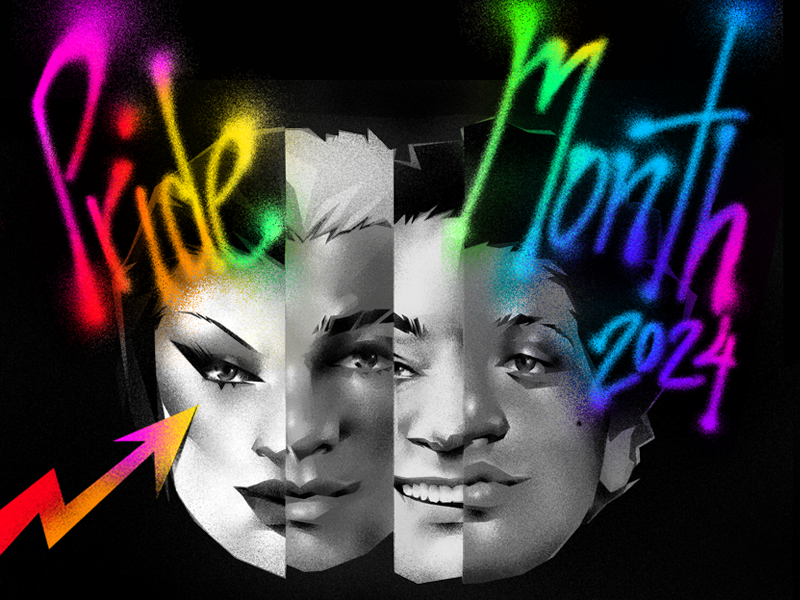Trans People Are Sharing The Differences They Noticed After Transitioning, And It Proves How Much We Discriminate Based On Gender

Recently, we asked the trans members of the BuzzFeed Community about the differences they noticed before and after transitioning. After all, trans people sometimes have a unique perspective on how society treats men, women, nonbinary, genderfluid, and non-gender-conforming people differently, having potentially had two or more gender experiences.
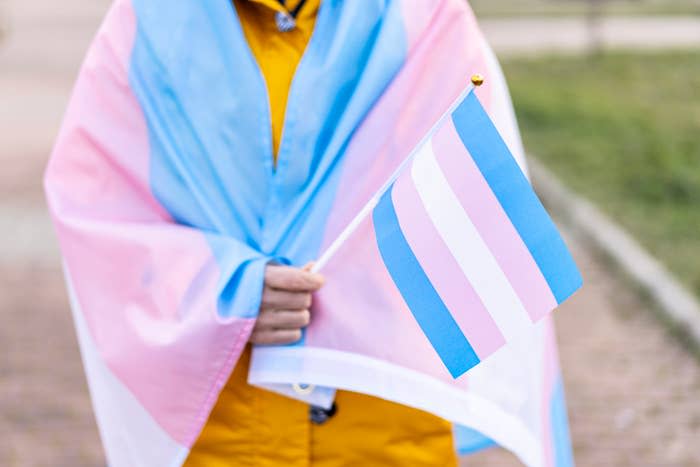
We received a ton of responses, so below are some of the most interesting and insightful ones.
Trans men who were AFAB noticed some differences in how they are perceived socially now, along with physical changes:
1.
"Four and a half years on [testosterone] here. I’ve always been boyish, so my friend group and fashion sense stayed the same. The main change I noticed was how others treated me. I get asked to help move stuff more and don’t get told to 'smile more' or get leered at by strangers, which is such a blessing I didn’t even consider.
Physically, I’m stronger, my proportions changed, and my feet grew and height increased. T didn’t make me aggressive, just very *excitable*. Overall, I am so damn happy I made the decision to transition, no matter if people have negative opinions on my identity. I am loved and cherished still, and my mental health has skyrocketed over the last four years."
2.
"FTM, transitioned at 19. To be honest, I haven’t noticed that much difference in how people treat me. The biggest difference is that HRT has made my emotions a lot steadier, and I’m way more confident. It’s also weirdly difficult to cry —apparently, it has something to do with hormones changing your tear ducts."
3.
"I transitioned from female to male, and the biggest physical differences I've noticed are in how my body processes being cold and needing to pee. Before, when I was in either of those situations, they felt IMMEDIATE and UNBEARABLE. Being on testosterone makes them both things where I'm like, 'I should deal with that at some point,' but it doesn't need to be NOW.
Also, people like to talk about how much more rational men's clothing sizes are, but I haven't found that to be true at all. A 31-inch waist fits me very differently in different brands and even different styles in the same brand."
—anonymous
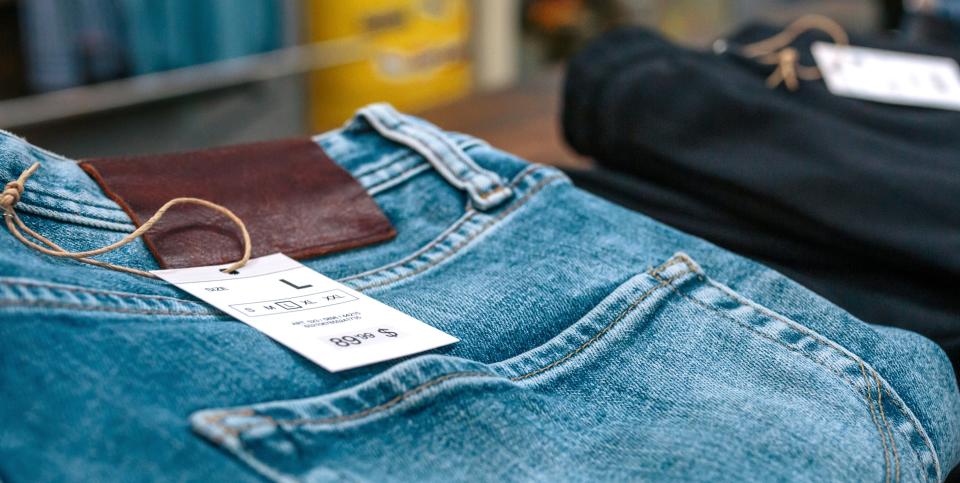
4.
"A lot of my friends have completely forgotten that I’m not a cis male and will talk/joke about certain things. And when I bring up something from my past about being raised a girl or not having a dick, they are dumbfounded, trying to rack their brain around how that’s possible, LOL."
—anonymous
5.
"Trans man here. I am honestly so shocked by how much easier life is for me now that I’m fully passing. I’m treated with so much more respect, and I no longer feel unsafe in most public areas. I don’t know if this is the same for every trans man, but I really do feel that now I am a man, the world feels structured to benefit me entirely. I’m not inherently happy about this, obviously. I’m just constantly reminded of how truly awful life can be for women."
—anonymous
6.
"I am treated completely differently [than] before my transition. To everyone, I was just one of those girls that always hung out with the boys. A major tomboy. Once I started hormones, I felt more like myself, and finally, everyone was able to start seeing who I saw all along. It was much harder before I passed. For those who don't know, 'passing' is when a trans person is seen as a cis person. Once I started passing, I was more welcome into male spaces.
Very few people at my current workplace know my trans status. I am seen as a cis male consistently for the first time in my life. It opened me up to a world of guy talk, which is wild. I honestly thought guy talk was a made-up thing in movies. But it's real, and I'm here to tell you that there are certain things men will not say in 'mixed company.' After being at my workplace for almost two years, it doesn't faze me anymore."
—anonymous
7.
"I'm over 30 and out as FtM for three years. I absolutely love that strangers are no longer asking and judging me about kids ('Do you have any/why not/when/who's gonna take care of you later?'). I also feel much more self-assured, nobody is second-guessing my technical competence (I work in IT), and as an extension, I am not second-guessing myself, either. I genuinely feel much more at ease and comfortable, and I'm happier. I also don't hesitate to speak up for either myself or others, and interestingly, I've become much less tolerant of misogyny and sexism in general."
—anonymous
8.
"This may be silly — or just plain obvious — but the men’s restroom is almost always in worse condition than the women’s restroom. I’ve seen unspeakable things stuffed in toilets, smeared on walls, and pooled at the bottom of stalls. It reminds me of that saying, 'You never know what you have until it’s gone.' I miss relatively clean public restrooms, but I am also way too dysphoric-ly stubborn to use the women's outside of absolute emergencies."
—anonymous
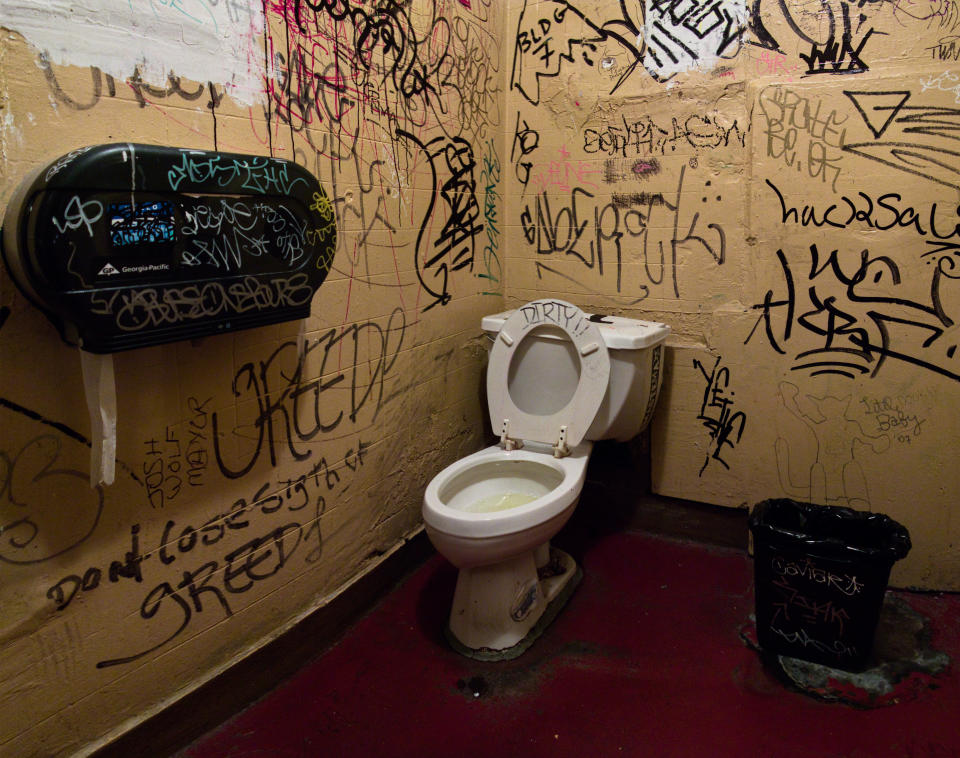
9.
"Cis men really don't seem to wash their hands in bathrooms, at ALL."
—anonymous
10.
"I was assigned female at birth and began transitioning in my early 20s. I began 'passing' as a straight, cisgender male and noticed how I felt safe walking alone. People didn't bother me as much. I noticed that when I did group assignments, people would listen to me more and talk over me less. This all sparked a lot of feelings inside me, and it helped me work through a lot of internalized misogyny. If it hasn't already been done, someone needs to write a paper on the difference in culture between the men's and women's restrooms. The men's room is generally a mess, and eye contact or quick greetings seem forbidden. I miss the camaraderie of the women's room all the time — the sharing of tampons, a quick heads-up if the toilet paper is low, and a shoulder to cry on during a drunken meltdown. Now it's one stall that's being used by someone watching YouTube loudly on their phone and Zyn pouches lining the urinals. Love it."
—anonymous
11.
"I transitioned from female to male. There are a lot of differences, but one I did not expect is that — before I passed as a man — I would offer car rides home to strange women my age I saw walking on the road in my town, especially in the cold winter. Now that I pass as a man, I feel as though they would immediately assume I intended something bad (understandable from their position), so I just keep driving and hope they get home safe. The instant solidarity and connection I formerly experienced with women is not as readily experienced with men. I had to come out as gay to my managers at work just to get them to stop teasing me for 'flirting' with the female receptionist my age, whom I'm friends with outside of work. Literally cannot be friends with women or go out to dinner with them without everyone assuming we're a couple."
—anonymous
12.
"I'm transitioning FtM and passing most of the time. Women, when talking about reproductive issues or periods, pat my knee and say, 'You don't have to worry about that.' Doctors take me more seriously. I get fewer smiles back on the street. Uber and Lyft drivers don't try to make small talk, which I love. I still get clocked on the phone, and it's wild how condescending people are."
—anonymous
13.
"I've never experienced the men vs. women part; it's more that before I transitioned, I was catcalled a lot. [Now that I've] transitioned, I get left alone, which is lovely. The downside was I got a lot of harassment: things thrown at me by strangers in the street, threats, being filmed and harassed. I've also faced discrimination when applying for jobs."
—anonymous
14.
"I've noticed quite a few differences. As a woman, men paid unwanted attention to me. When I corrected them, they'd laugh it off claiming it was harmless. If I needed help, men would come do it for me as opposed to showing me how best to do a job, or just assisting the extra muscle I may need."
—anonymous
15.
"I am a transgender man who transitioned about 10 years ago. The first thing I noticed right away, especially being more of an opinionated 'nerd' type, is that I no longer had to bring backup to a discussion. I didn't have to google things to prove I was right about something. People just listened to me and believed me when I said things. It was a whiplash! Not that everything I say is always right, but people would actually engage with it instead of just being like, 'Oh, sweetie, you don't know what you're talking about.' Just in general, people treated me like I was another person on the same level and not in an infantilizing way.
I did mourn the loss somewhat of not being seen as a threat to women, though. I felt like I lost the ability to communicate with women my age without them being guarded or suspicious, but I don't blame them at all. I was taught to do the exact same thing."
—anonymous
16.
"FtM: Far less emotion (haven't cried in 15 years), far more body hair. :P
One thing that stands out was that when I was dining out with my ex-husband (not ex yet then, obviously), pre-transition, they would automatically give him the bill, and as soon as they clocked me as male, they asked if we wanted to split. Women are more weary of me now, I feel less comfortable complimenting both men and women for how that might come across, people don't interrupt me nearly as often now, and I feel like I'm taken more seriously, even if I'm spewing the same bullshit."
—anonymous

17.
"I transitioned FtM nine years ago. One thing I will notice about the 'men vs. women' environments is that it is so much less scary in the world passing as a man. Men leave me alone or say, 'What’s up man?' whereas when I was a girl, I was terrified to walk down the street. I feel very lucky to be who I am, but I think the world has a lot to learn. Trans people are just people. That’s it."
—anonymous
18.
"I’ve applied to jobs under my dead name and birth gender and never got a call back or any kind of acknowledgment that they received it. Applied to the same jobs as my new name and current gender and moved on to the interviewing process so fast."
—anonymous
Trans women noticed a lot of the same differences, but on the other side:
19.
"I transitioned MtF. One of the biggest differences was how small I started to feel. Taking hormones, shrinking muscles, and always being scared of what people are thinking about you and how you look. I'm 6 ft., but I would feel tiny when out with people."
—anonymous
20.
"Men started opening doors for me, which I'm happy for now that I’ve lost my boy strength; I had to relearn basic tasks like opening heavy doors. Men are much more likely to help me with physically difficult things, warn me something is heavy, and unfortunately, mansplain and give unnecessary help with non-physical tasks. I’ve had a few gas station clerks ask for my number, or say I’m pretty and ask if I have a boyfriend. Ewwphoria at first. It quickly got old.
Women are much more friendly and willing to help me, like offering to stand guard while I use a public restroom that won’t lock if I do the same for her or help me push my car out of a parking space when it wouldn’t start. Now they usually make eye contact and smile as we pass each other; I didn’t realize before just how separated these two genders are in public, but now I’m finally joining the half of the population that I should have been with from the start.
Physically, the changes estrogen made to my body and mind feel absolutely wonderful. There are things I didn’t expect, like my feet shrinking and having to buy smaller shoes, and my thighs and butt getting too big even to pull my men’s pants up all the way, never mind buttoning them. I’m so glad my body odor smell changed for the better and is rarely even present; I can easily skip a shower or even two. Sunscreen is more important than ever, though, as is eating healthy if I want to feel well and stay in shape. And the loss of strength, wow…it was true what I heard about thinking you know what to expect, but being surprised when it happens; nothing could have prepared me. I struggled to enter a building a few times because opening doors isn’t even the same."
21.
"I definitely can tell I am treated like less of a person after transitioning. I am MtF, and my ideas [are ignored], but then when a male says the same thing, they listen."
—anonymous

22.
"I was a professional in the finance industry for eight years and was a senior member of my department and seen as a subject matter expert before I came out and began transitioning (MtF). My workplace was quite progressive and supportive, but when I changed my name and started using she/her pronouns, I noticed an immediate change in the way customers treated me. My expertise in my field was suddenly second-guessed or questioned where I was the authority before."
—anonymous
23.
"Interestingly, my son told me I'm a far better mom than I ever was a dad!"
—anonymous
24.
"As a trans woman, I have noticed that clothes shopping has become a lot more fun, and I am starting to notice that I am starting to be attracted to both men and women."
—anonymous
Nonbinary people had their own set of observations, as well:
25.
"I'm genderfluid and recently had top surgery. I do dress pretty femme most of the time, but the fact that everyone seems to think that I still have to cover my chest even though there are no breasts there anymore has me baffled! I literally have the same chest as a FtM person, but because I present femme, it's inappropriate. So weird!"
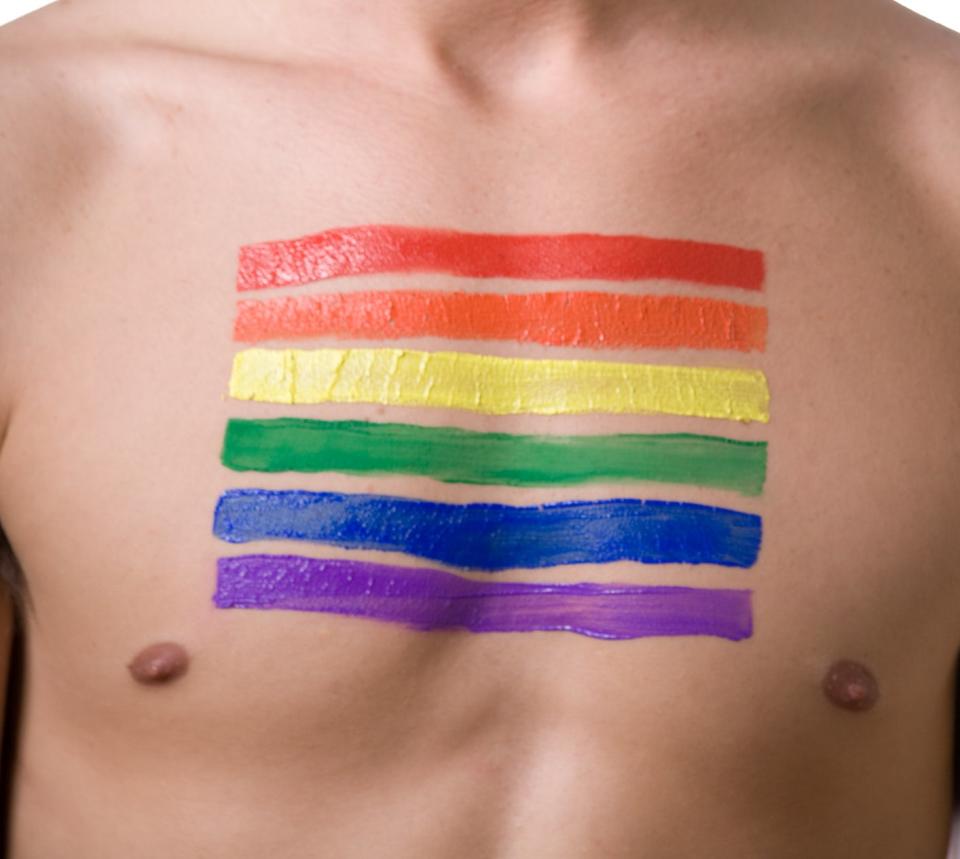
26.
"I feel infinitely better in terms of my overall wellbeing. While dysphoria often can be related to your personal feelings about your body, people often underestimate the impact of social dysphoria: the distress caused not by your body image but by being constantly misidentified in public. It was so depressing always being called 'ma’am' in public no matter how I dressed or acted. I just was never read as male until I started testosterone, and it’s really nice not having people’s incorrect assumptions thrown in my face all the time.
One BIG thing I’ve noticed that I haven’t seen discussed much is the difference in how people treat you when they view you as a gender-nonconforming man vs. a gender-nonconforming woman. Before being on testosterone, I was always read as a butch lesbian, and now I’m read as a femme man. When people thought I was a butch lesbian, I was frequently treated with hostility, but that hostility was generally less overtly threatening. While I now am the beneficiary of male privilege, I’m also physically threatened and publicly harassed a lot more for being gender-nonconforming. I would get stares and under-the-breath comments before, whereas now I get open threats, yelled slurs, and loud comments intimating a desire to commit violence far more often. While I don’t want to downplay the negative experiences people read as butch women receive, I have observed that straight men are a lot more threatened by — and feel that they have more justification for being violent toward — effeminate men (and trans women) than people they read as butch cis women."
—anonymous
27.
"I will say that one of my experiences as a mixed-race nonbinary trans man is that my treatment has gotten a lot worse than when people thought I was a woman. I am Choctaw and Iraqi, and now that I am perceived as a man, I often face an increase in racism.
Which is depressing stuff, for sure! So let me tell you about the positives.
My father accepted me immediately. After I came out as trans, he came out as bisexual. We've gone to Pride together multiple times and are able to be ourselves without fear when we're with each other.
My boyfriend and I can share a closet. I have saved so much money on my wardrobe, it's incredible. And in regards to my boyfriend, he has been sweet, compassionate, and understanding beyond belief.
When I got on testosterone, my body stopped hurting. For most of my life, I was a survivor of chronic pain and fatigue. When I got on T, both of them went away. I talked to my doctor, and we did some tests. It turns out that for most of my life, I suffered from a hormone imbalance caused by aromatase deficiency. Getting on T literally made my life easier. It also led to me getting tested and finding out that I am intersex, which is something I hold with a lot of pride. So, literally, because I am transgender and moved forward with transitioning, my physical health improved DRASTICALLY, and I learned something about myself that explained what my puberty was all about because it definitely wasn't typical.
I promise it gets better, especially if you move to a more accepting area, like I did recently. All in all, it's been a beautiful journey, and I cannot wait to see what the future has in store."
—anonymous
A big thank you to our trans readers for their insightful comments! Hopefully, reading these can help other trans people to navigate their transition and find the joy they deserve on the other side. ❤️🏳️⚧️
Looking for more LGBTQ+ or Pride content? Then check out all of BuzzFeed's posts celebrating Pride 2024.
